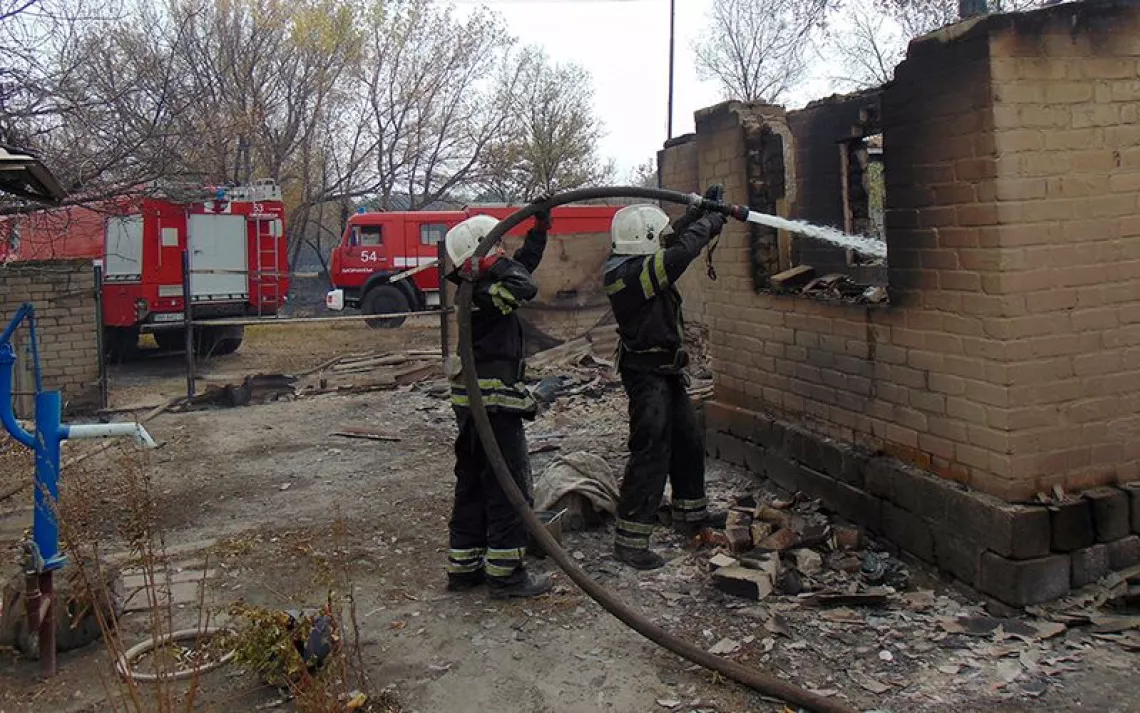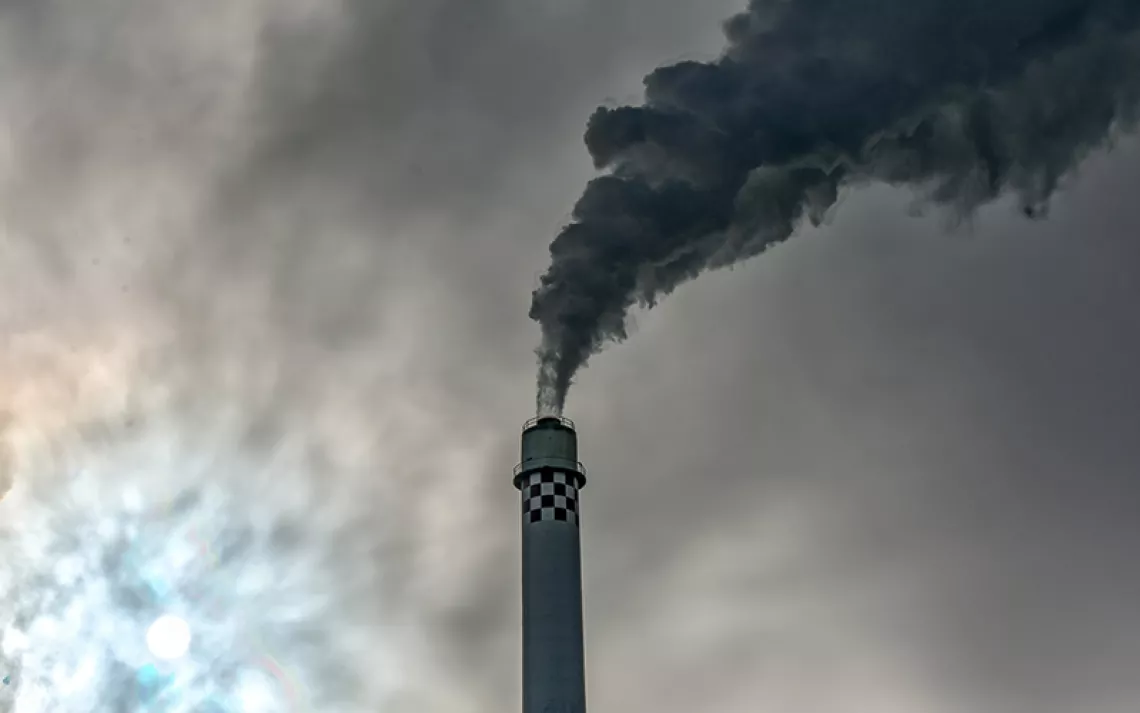Why Big Oil May Not Recover From the Pandemic
“Demand destruction” could spell the beginning of the end for the petroleum industry

Gas prices in Hattiesburg, Mississippi, on April 26, 2020. | Photo by AP Photo/Rogelio V. Solis
Everyone has seen images of empty streets and quiet cities, a serene if dystopian snapshot of life under a global pandemic. New York. Paris. New Delhi. Hong Kong. At the start of April, roughly half of the world’s population—some 3.9 billion people—were under some sort of a lockdown.
With so many cars, trucks, and planes idled, the global oil industry has been plunged into crisis. Global oil consumption is down by roughly 30 percent, the largest and fastest decline in the history of oil. Crude prices have cratered from around $50 per barrel in early March to below $20 per barrel by late April. On April 20, the price of US crude oil actually fell into negative territory, meaning that certain producers had to pay someone to haul their oil away.
In some oil fields, drilling has come to a halt. Since early March, the oil industry has removed from production 199 drilling rigs from the Permian Basin, America’s most prolific oil region, a decline of nearly 50 percent. Mass layoffs and spending cuts have already begun. An estimated 140 US oil companies could go bankrupt in 2020 if prices remain stuck at $20 per barrel.
Last week, during a routine call with investors, Royal Dutch Shell CEO Ben van Beurden said, “We are looking at a major demand destruction that we don't even know that it will come back.” He then added, "The oil price will come back, but if the volumes are significantly lower, we still have a major dislocation."
As COVID-19 continues to take thousands of lives a day, and the prospect and timing for an effective vaccine remains uncertain, it is at least clear that the oil market won’t return to anything resembling normal for the foreseeable future. Most analysts see a transition to clean energy as inevitable. But oil industry analysts are still questioning whether the pandemic and the current collapse of the oil industry will hasten or delay that transformation.
“Whether 2019 ultimately proves to be the year of peak demand or not, I have a very high conviction that this whole crisis will accelerate the time at which peak demand happens,” Mark Lewis, global head of sustainability research at BNP Paribas Asset Management, told Sierra. While there is much uncertainty, the trends are not good for Big Oil. “Let me put it this way: Find one thing in this pandemic that is good news for future oil demand.”
While the oil industry has suffered a body blow due to collapsed demand, it’s still premature to begin dancing on the oil industry’s grave. After all, renewable energy is also bearing the brunt of the downturn, with the elimination of more than 100,000 clean energy jobs in March alone. At the same time, it is possible that the largest companies—ExxonMobil and Chevron, for instance—may emerge on the other side of the pandemic licking their wounds but in reasonably decent shape, having consolidated their position by scooping up distressed oil assets at rock-bottom prices. The oil will still be in the ground, waiting for some other corporate entity to extract it.
“Ultimately, oil is a multitrillion-dollar industry with no transportation sector substitute (yet),” Joe Ryan, the executive director of global initiatives at Energy Innovation, a nonpartisan energy and environmental policy firm, wrote in an email.
It will take a sustained shift to electric vehicles and renewable energy to ensure the oil industry does not simply bounce back. That transition is still in its adolescent stages. “In the end, the decline of the oil age will more likely come not with a bang but with a whimper,” Ryan said.
Even though the oil industry won’t disappear overnight, there are reasons to think that it may struggle to recover from the current meltdown. It’s possible that the pandemic and the utter collapse of oil prices may magnify underlying trends that were already underway.
Even before the coronavirus stopped the global economy in its tracks, investors were souring on the oil industry. Wall Street was beginning to lose faith in an industry that was accumulating massive levels of debt and producing meager returns. Jim Cramer, the loud host of CNBC’s Mad Money, declared in January that he was “done with fossil fuels,” arguing that the industry is “in the death knell phase” because “the world has turned on them.”
Several factors explained Cramer’s much-publicized about-face. The economics of electric vehicles and renewable energy were eating into the profits of fossil fuels. The current crisis may have hit the pause button on this progression, but EVs continue to gain ground on the internal combustion engine with each passing year. The climate crisis is more urgent than ever, and if and when governments act, the clean energy transition could be locked in and scaled up.
As investors have turned away from the fossil fuel companies, the pool of money allocated to oil and gas has shrunk dramatically. “Capital availability for new oil developments has tightened significantly over the past five years, with the market increasingly focused on the low-carbon transition,” Goldman Sachs wrote in a report on April 20. Credit extended to fracking companies for new drilling is down 90 percent from its peak, “with financial institutions redirecting financing towards renewable developments,” Goldman analysts said.
Even the Trump administration’s various attempts at bailing out the industry may not be enough to reverse this trend. “[W]hile massive infusions of capital and special privileges may briefly delay the inevitable decline of these companies, they will not reverse the trend,” the Center for International Environmental Law wrote in a recent report.
The “new normal” created by the pandemic may very well depress oil demand in the long run. Hundreds of millions of people are working from home, and social distancing measures could live on in some form for years. That means more teleworking, which in turn means less driving and flying. The pandemic has disrupted overly stretched global supply chains, and that could spur a resurgence of locally sourced food and more regional or national manufacturing of consumer goods. The push toward ever-greater globalization may even go into reverse. Hunkering down on a global scale will likely be temporary, but some pre-pandemic lifestyles may never return. The steady advancement of electric vehicles and renewable energy, more local living and a dramatic change in traveling habits, raises the possibility that we may have just passed an all-time peak in oil demand.
The collapse in demand will almost inevitably force the oil majors to retreat from expensive exploration projects. Almost no oil company is making money at today’s prices, and the cutbacks will be severe. “Who on Earth is going to be able to justify to their shareholders making big new investments in new oil projects at current levels?” Lewis of BNP Paribas Asset Management added.
The severe cuts to spending and drilling will lead to a decline in production. Judging by a decade of red ink in the US shale industry, American oil companies may need prices to rise much higher than the $50 to $60 per barrel seen in the past few years in order for them to rebound to recent growth levels.
Industry optimists may argue that a shortfall in supply from today’s downturn may simply lead to higher prices if demand does rebound. But even in that scenario, higher prices will only accelerate the transition to lower-cost renewable energy and electric vehicles. The oil industry’s behemoth size is not financially sustainable at current prices; an oil price rebound will only push more people toward renewables and EVs.
“They’re in a vice, and they're being squeezed from both sides,” Lewis said. When asked what the oil industry will look like in five years, Lewis responded: “Smaller.”
The oil industry won’t disappear quickly. Oil remains vital to the global economy, and the full transition to clean energy will likely take time. But even before the pandemic, Big Oil faced an array of growing threats. Now, suffering from a historical crisis, the oil industry may never fully recover.
 The Magazine of The Sierra Club
The Magazine of The Sierra Club



